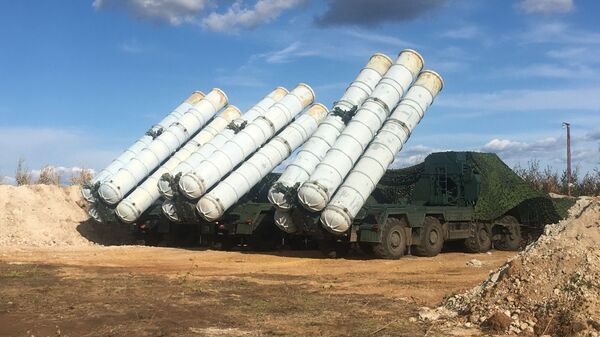On 20 April, the White House again threatened Ankara with sanctions over the deployment of the Russian-made S-400 surface-to-air missile systems in Turkey, citing the Countering America's Adversaries Through Sanctions Act (CAATSA).
"We continue to stress at the highest levels that the S-400 transaction is the subject of ongoing CAATSA sanctions deliberations and it remains a major obstacle in the bilateral relationship and at NATO", US State Department spokeswoman Morgan Ortagus told Reuters on Monday.
The US State Department's statement is “unacceptable and ill-timed” given the world's ongoing fight against the coronavirus pandemic, says Gaffar Yakinca, a Turkish political commentator and publicist.
"Even before the epidemic, there were serious problems in Turkey’s relations with NATO and the US, in particular, concerning security issues", the commentator observes. "That is why Turkey has outlined its own national course and continues to follow it. This national course has prompted the US discontent, and this situation will remain prevalent after the epidemic. However, as we see, US threats with regard to Turkey's acquisition of the S-400 have been largely ignored by Ankara. We can confidently say that the US pressure and threats cannot force Turkey into abandoning its chosen course".
Washington argues that the S-400 systems which were delivered to Turkey by Russia in 2019 are incompatible with NATO defence infrastructure and pose a risk to Lockheed Martin’s F-35 stealth fighter jets. However, Ankara has made it clear that its decision to exploit the S-400 remains unchanged despite sanctions threats and the suspension of its participation in the F-35 programme by the US.
Turkey Lending Helping Hand to NATO Members, Other States
Yakinca emphasises that while the US continues to chastise Ankara, Turkey has emerged as one of very few NATO states which are providing medical aid to foreign countries amid the COVID-19 crisis.
The military bloc's apparent sluggishness in delivering assistance to its members indicates that the US-led military bloc is in a deep crisis, he believes. Although NATO is a huge organisation with significant resources, its support to Italy is virtually invisible, according to the publicist.
"Meanwhile, you can see Russian ambulances on the streets of Italy", he notes, adding that the COVID-19 crisis "has dealt a very serious blow to NATO's image".
Italy and Spain, the NATO members most hurt by the coronavirus pandemic, are now experiencing the same disappointment as Turkey, which was once politically abandoned by the alliance, he says in an apparent reference to the 2016 attempted coup, when the Turkish leadership was left to its own devices by its NATO allies.
According to the commentator, the alliance's response to the coronavirus outbreak has proven ineffective in the eyes of the public. "Perhaps NATO can mobilise sufficient military and economic resources, but this seems unlikely", he believes. "And even if this happens, in my opinion, it will now be extremely difficult for the alliance to fill in the gap that was created during the epidemic".
"In my opinion, the aid provided by Turkey does not represent NATO – it is a personal, independent decision of the Turkish state", he continues. "Currently, China, Russia, Turkey and Cuba are leading the effort to deliver humanitarian assistance to those fighting against the pandemic. As you know, Turkey provides assistance not only to NATO countries. For this reason, Turkey’s actions can be regarded as a genuine humanitarian effort".


